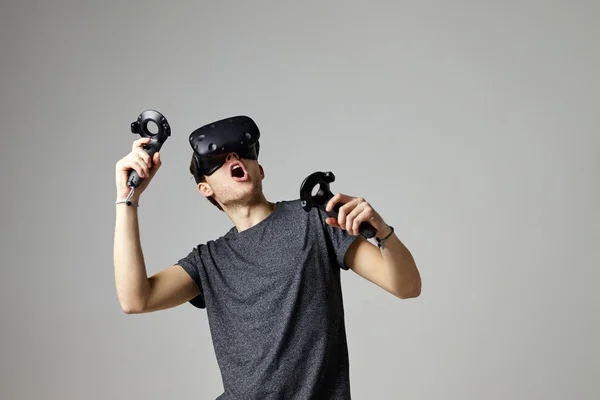
Stay tuned for the announcement about our MRI VR Game!
Stay tuned for the announcement about our MRI VR Game! Category: News More updates

Virtual Reality (VR) has come a long way since its early days of clunky headsets and limited experiences. We’re on the cusp of a VR revolution, one where the lines between the real and the virtual will blur, leading to profound changes in how we connect, learn, work, and even how we perceive ourselves.
Imagine a virtual world indistinguishable from our own. Powered by advancements in graphics and haptics, VR environments will surpass the fidelity of our physical reality. Every texture, subtle shift in light, and nuance of the physical world will be replicated virtually. Haptic suits and advanced controllers will introduce sensations of touch, weight, and resistance. The result is a sense of presence so convincing that our brains will struggle to tell the difference between what’s real and what’s simulated.
VR spaces will become vibrant social hubs. Gatherings that would typically happen across long distances – conferences, concerts, even casual hangouts with friends – will unfold in virtual worlds with a true sense of togetherness. Our virtual avatars will be more than just visual representations; they will express who we are or who we aspire to be. These digital selves will play a crucial role in shaping online interactions and identity formation in the future.
VR will transform how we acquire skills and how we work. Training modules will feel like real-world scenarios, from practicing complex medical procedures to piloting aircraft. Students won’t just read about history or science; they’ll be transported to ancient Rome or explore the inner workings of a cell. Remote collaboration will feel as intuitive as working side-by-side, with VR enabling shared design spaces and immersive work environments.
New Frontiers for Exploration
VR’s reach will extend into surprising domains. The healthcare sector will benefit greatly, with VR-based therapies that assist in pain management, mental health treatment, and physical rehabilitation. Early experiments suggest that VR-assisted surgeries, performed remotely, could become a reality.
The potential of mind-machine interfaces coupled with VR is particularly fascinating. Imagine the ability to navigate virtual spaces or create solely through thought. AI-powered VR environments will also evolve, populating virtual worlds with intelligent, dynamic characters and scenarios personalized for each user.
VR will defy our current limits, offering a boundless space for creation, connection, and unprecedented experiences. It’s a future where the digital and the physical become almost intertwined, a future that raises possibilities both exhilarating and a little bit unnerving. Get ready, because a revolution in how we perceive reality is just beginning.

Stay tuned for the announcement about our MRI VR Game! Category: News More updates

What is next for VR? Category: News The future of VR (Virtual Reality) holds several exciting possibilities and potential advancements: 1. Improved Hardware: There will